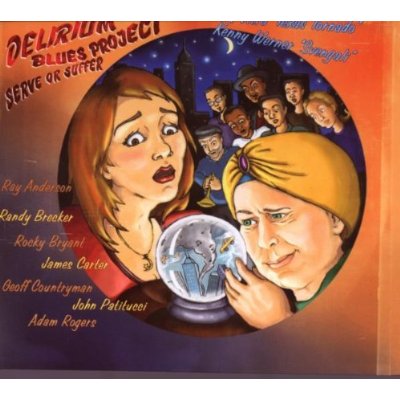King was a veteran of the California music scene when he made these and other recordings, having recorded for such legendary record men as John Dolphin, Johnny Otis and Bob Geddins. He initially issued Think Twice on his own Flag label, and when a Buffalo Sahara Records wanted to order 2000 copies, he leased it to them and had a brief association with that label after the urban blues charted at a time when few blues entered the record charts. After his Sahara deal ended, he moved to Los Angeles where he signed with Kent-Modern records for sessions that were produced by the legendary Maxwell Davis. These recordings have been reissued by the English Ace label along with contemporaneous recordings by Arthur K Adams, Together: The Complete Kent and Modern Recordings.
The pairing of the two on a reissue makes sense, insofar as Adams was session guitarist for many of the blues productions Davis did in the late sixties for Kent-Modern records including sessions for B.B. King as well as Al King. Saxophonist Big Jay McNeely is mentioned in the liner notes as being on many sessions for Davis and the late Clifford Solomon remembered playing on sessions as well. The music tight with brassy horns and Adams throwing in sizzling guitar breaks. Al King himself was an outstanding singer as well as songwriter. A couple of lyrical fragments illustrate this. The opening My Name Is Misery, has this powerful verse,
“I don't have no money
And I can't even pay my rent
If you put a money dog on my trail
He wouldn't even scratch a scent.”
While his The Thrill Is Gone (set to the melody of “The Things I Used To Do”) has these lyrics,
“The thrill is gone
The thrill I used to have for you
The thrill is gone
The thrill I used to have for you
Now you're beggin' me to take you back
Lord, but ain't a darn thing I can do.”
He is stark about relationships on Aint Givin’ Up Nothin’, a hot shuffle where he sings about when one has friends one has plenty of friends but when one runs out of money, friendship ends, and things are a give or take situation, what do you have to offer to me with a booting tenor sax solo. Then with Adams playing hard chords against an insistent beat he sings that married life is all right, but sometimes it is Better To Be By Yourself, with Adams taking a relentless solo. It’s Getting Late, is a solid blues in a vein similar to contemporaneous Kent recordings by Lowell Fulson. Then there is “Get Lost” a diatribe against an ex-lover which incorporates the titles and lyrical fragments from his prior 45s as hAdams puts everything into his solo. The body of Al King’s Kent recordings is on the same level as his Shirley-Sahara recordings and thankfully these are now currently available from Ace as opposed to a hard-to-fine, expensive Japanese reissue.
While Al King was a veteran, guitarist Adams was a relative newcomer to the LA scene and his rhythm guitar helped beef up B.B. King’s recording of The Jungle. In fact, Arthur’s picture of him with a guitar was used for the cover of Kent’s album “The Jungle,” a fact I was unaware of until I read Tony Rounce’s notes in the accompanying booklet. He is represented by sessions from late 1966 or early 1967. She Drives Me Out Of My Mind, is a slow B.B. King style blues with a high tenor vocal that is not far removed from Ted Taylor with a touch of sixties Buddy Guy along with some real strong guitar playing. On the other hand, I’m Lonely For You, is more in the vein of the recordings of Impressions with a fine vocal and some nice guitar. A couple of duets with female singers are again more in a sixties soul than blues vein, but nicely done with Adams displaying a strong soulful singing style.
As Tony Rounce writes in the accompanying booklet, both King and Adams “deserved far better fame than these records bought them 40-odd years ago … .” While in some case, 45 rpm singles had to be used as opposed to the original tapes, sound is generally quite good and Ace’s packing and production is of its typical high level. The result is an important reissue of two powerful, if neglected blues artists (although thankfully Adams is still with us and continuing to make strong, original music).
This was a purchase. Here is Al King's recording of Ain't Givin' Up Nothin.
Here is a little bit of Arthur Adams in performance.


























